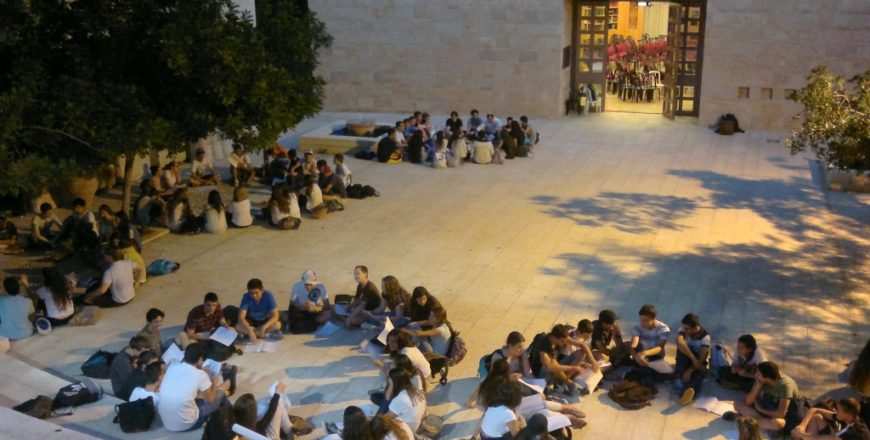
A Partnership Built on Trust: Q&A with Rachel Jacoby Rosenfield, Shalom Hartman Institute of North America
The Shalom Hartman Institute of North America has engaged Rosov Consulting on multiple projects over the past five years—consulting on their strategic business plan, evaluating programs, and studying the Institute’s impact in North America. To share the nature of this work with others, we recently sat down for a Q&A with Rachel Jacoby Rosenfield, the Institute’s Executive Vice President. We hope you enjoy her reflections and insights.
What is your role and responsibilities as the Executive Vice President of the Shalom Hartman Institute of North America?
For all but three months of my seven years at the Shalom Hartman Institute of North America, I have served as Executive Vice President. We’ve grown tremendously in that time and my job has grown as well, and changed, evolved. Currently, I am in charge of setting the culture and the tone for the organization. I do a lot of strategy and vision, development, some programmatic work, supervision, budget management, finance, operations, board relations, and coaching and work with the leadership team. I serve on the leadership team both in North America and the global team with Israel.
Why did you first decide to engage Rosov Consulting and why have you continued to engage them?
I know Wendy personally from our time in graduate school, and I appreciate the kind of intelligence and nuance that she is able to hold. When we began to seek a firm to evaluate our plan supported by the Jim Joseph Foundation, Wendy had a quick grasp of a pretty complex theory of change and a sense of what we were trying to measure and what might be proxies for measuring that. Wendy could be a part of the conversation between myself and representatives from the Foundation—and that’s critical. So that’s why we continue to work with her and the team
I have also really appreciated that evaluation is a major partnership. An external evaluator cannot simply come in and interpret and analyze what they see in a meaningful way without the strong partnership of the organization that is working with them. Rosov Consulting really views themselves as being partners with us. They are open to hearing from us and adjusting accordingly, if warranted. We’re able to have conversations transparently, even sometimes when it’s a little bit uncomfortable, and that’s part of why we work with Rosov.
What is an “aha moment” from the work you have commissioned Rosov Consulting to do?
One that comes to mind is when we went to Rosov Consulting and said that a part of the evaluation didn’t read quite right to us. And as we were speaking with Wendy, she had this great insight that we’ve quoted multiple times now. Essentially, the mental models that people come into “adult learning” with can sometimes serve as an impediment to them being able to do the kind of transformational ideas-based educational work that Hartman does. We ask people to step away from “I’m going to learn this practical skill so I can go do it” and take an approach that says, “I’m going to learn this so these ideas will fundamentally shape the leadership choices I make.” A day school teacher might be frustrated if they come into Hartman learning thinking, “I’m going to learn stuff I can use tomorrow in my classroom.” They’ll also miss the opportunity to grow in certain ways as an educator.
The approach we want people to have requires a very different way to set their expectations. And that interaction with Wendy got us thinking what we can say and do to ready people for our kind of learning. Now we can better meet people in the recruitment process, in how we frame and set expectations for a program, so that people are best positioned to learn and feel that their time is well spent. As we explored the results we had an “aha” moment as Wendy put it into words in a way that was very compelling and sticky for us.
How do you think Rosov Consulting’s work has and will inform the work of the Hartman Institute moving forward?
I think this work will buttress our ability to assert our value to our stakeholders, to our target audiences. We can tell them what to expect when people learn with Hartman, why this learning matters, and why it contributes to a Jewish future with meaning and purpose, which is our goal. Whether it’s day school teachers, Hillel rabbis, teenagers, or anyone else, we have a deeper understanding of why their ideas and leadership really matter in shaping Jewish life. In order for us to be really good at telling that story, we need to understand what people are hearing, what their experience is. Rosov has helped us to bridge that in pretty sophisticated ways, so that we’re going to be better at achieving our impact.




